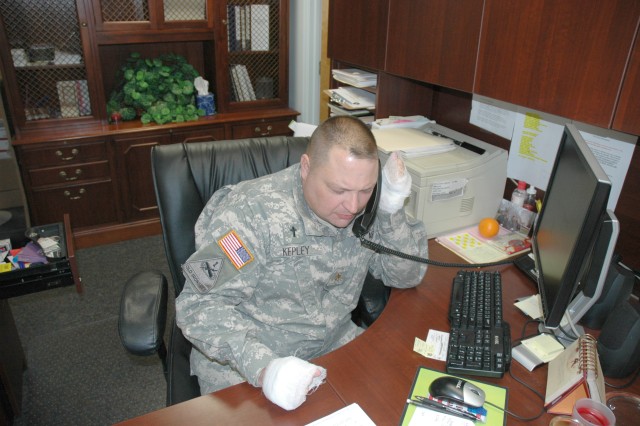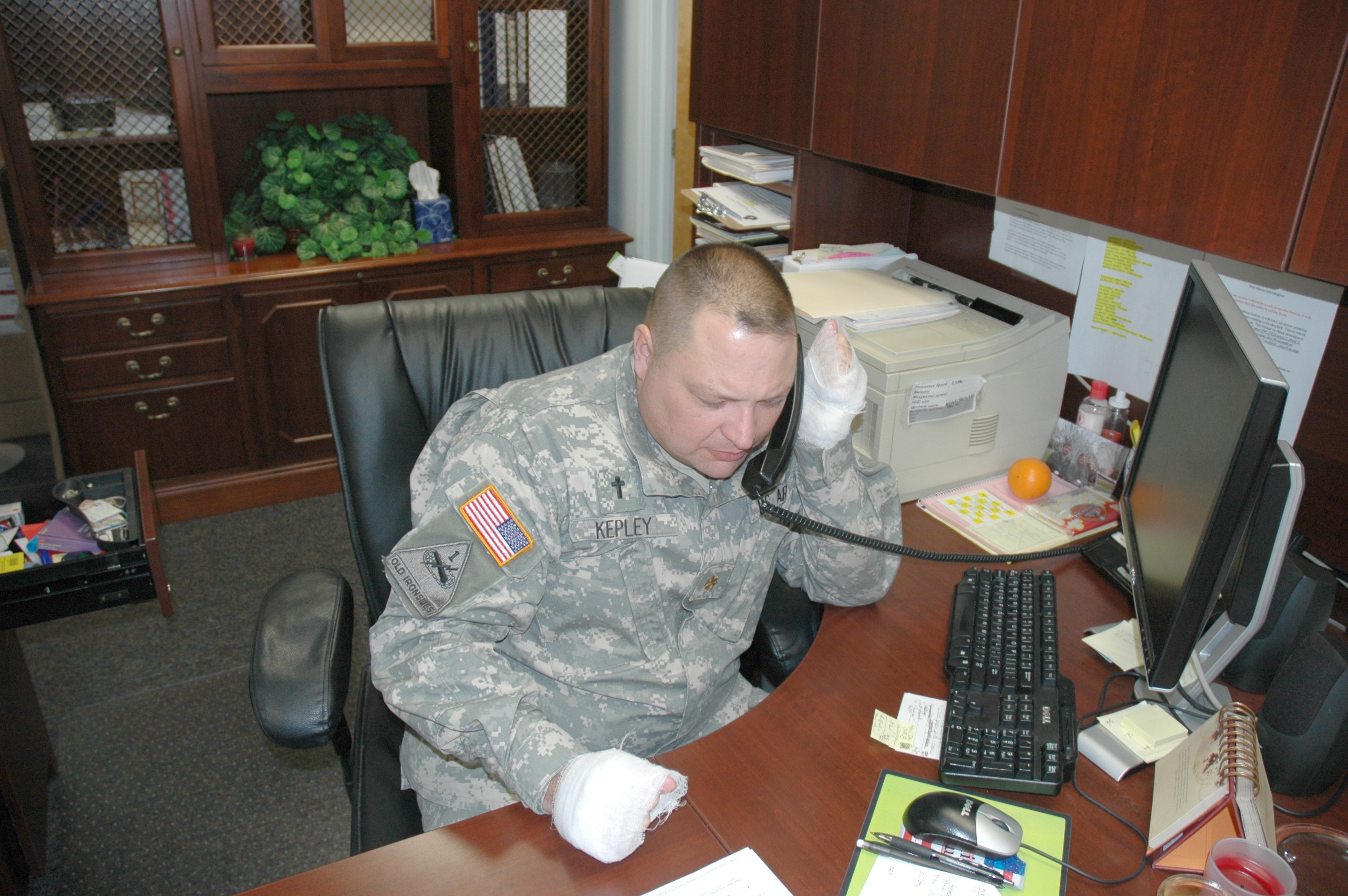
FORT BELVOIR, Va. -- A group of directors from Fort Belvoir stepped out of their comfort zone Oct. 22 and participated in the "Walk a Mile in my Shoes" program.
The program was coordinated by the installation's Equal Employment Opportunity Office in recognition of National Disability Employment Awareness Month.
Monique Dismuke, director of Belvoir's EEO, greeted volunteers during an early morning roundtable and said it was a great opportunity to better understand the life of someone working with a disability. Each director was then given a specific disability, which ranged from vision impairment to having no arms or hands, and was asked to work through those challenges over the next four hours.
MaryPat Begin-Ortiz, director of the Plans, Analysis and Integration Office, was asked to wear earplugs and work with a hearing impairment. According to her, the experience made her feel insecure - even in her own office.
"I never felt safe because people were coming in and out of my office and I wouldn't know it," Ortiz said. "That never occurred to me until today."
Maj. Jennifer Farmer of the Staff Judge Advocate Office wore a patch over her right eye as part of her vision impairment exercise. As if having the disability wasn't enough, Farmer also encountered some unsettling looks from co-workers and total strangers.
"When I was having lunch, no one knew it was an act and people were giving me some strange looks and just staring. It made me feel quite uncomfortable," Farmer said. "Maybe it was because they knew beforehand that I was participating, but my co-workers were also cracking jokes and having fun with [me]. I have a younger brother who's handicapped, so I understand what he's been through in life. It's not easy."
Travis Edwards, Fort Belvoir's outreach chief for Base Realignment and Closure, also participated and had the difficult task of pretending to be speech impaired. As Edwards told the group later during a debriefing, his outlook includes an all-new perspective.
"An employee working with a disability has got to be twice the employee as the rest of us. That's what I discovered from taking part in this program," Edwards said. "They have to do a lot more just to compensate for their disadvantages. We don't realize that."
For someone with a speech impairment, Edwards suggests a machine that could type and immediately process what people say or possibly have an application similar to that on an employee's I-phone.
Chaplain (Maj.) Todd Kepley also recommends a voice-operated computer after his experience of working without any hands.
New to Belvoir, Kepley was moving boxes around his office when a set of keys fell on the floor. While it would have been easy to step out of character and pick them up, Kepley wasn't about to take the easy way out. Luckily for him, he says, the keys had a tab that he could pick up with his teeth. With an assigned observer watching, Kepley also made phone calls by dialing the numbers with the end of a pen.
"There are so many things that we take for granted. We don't consider how difficult those same things can be for someone with a disability," Kepley said. "Door knobs present a challenge for someone with no hands, so having handles you could push down on would be better. A computer that will dial or retrieve phone numbers would also be beneficial."
Michael Lariosa, a special emphasis program manager with Headquarters, Installation Management Command, was a guest facilitator for the group and said it's common for employees with disabilities to remain silent about their challenges in fear they may be discriminated against in the workplace.
To ensure that doesn't happen, Lariosa added it's most important to treat people with the same compassion and kindness you would want for yourself.
Having come from an organization where 13 percent of the work force had some type of disability, Installation Commander Col. Jerry Blixt couldn't agree more.
"It's important to educate people and be mindful of those who are handicapped," Blixt said. "There are places around Belvoir that are not user-friendly and we need to do what we can do help make things better, especially for those working with disabilities."
A report outlining the limitations observed by directors will be compiled by the end of the year, Dismuke said.

Social Sharing